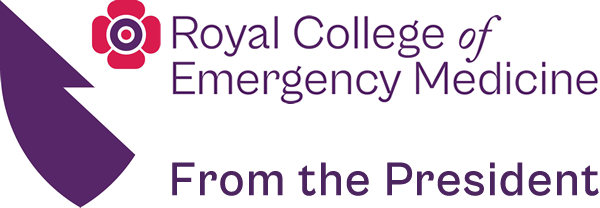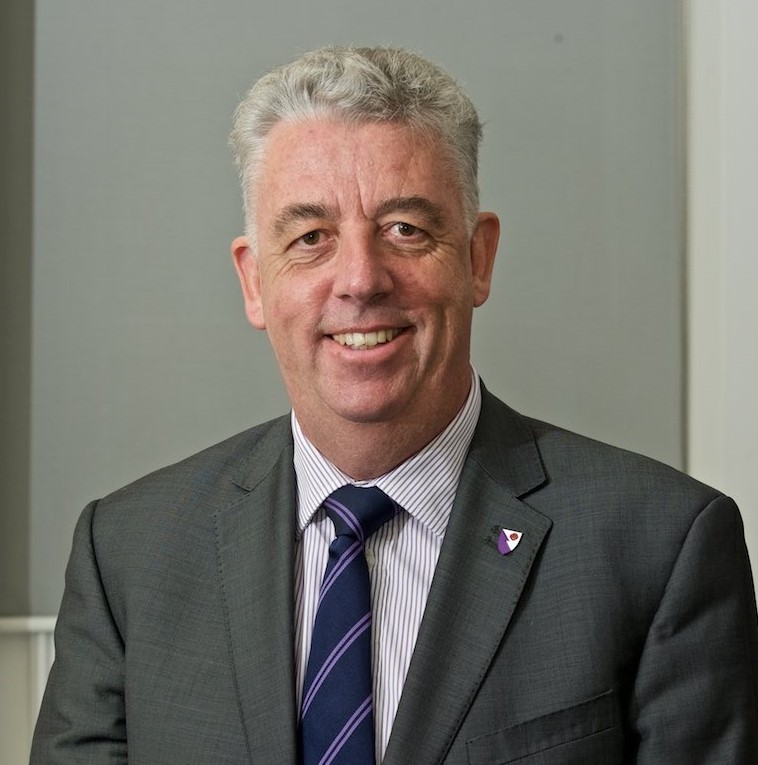Another busy month for the College and more encouraging signs of progress in delivering the #CEM10 agenda.
We have had meetings with the CQC promoting our ideas for inspection standards in Emergency departments, Monitor to argue the case for urgent tariff reform and HEE to finalise arrangements for the new EM ACCS posts and the overseas recruitment drive. At the time of writing we are still awaiting final applicant numbers for ST4 posts but the early signs are encouraging and suggest a higher fill rate for 2014.
I believe this last point is a vindication of the College’s endeavours. Some have argued that by drawing attention to our plight we were putting people off. My argument, and that of Council, is that unless we address the root causes of our problems the situation would only worsen.
Nevertheless the need for positive messages is important and the proof of our strategy will be judged by reversing our recruitment and retention problems. To this end my conversations with the DH have been focussed on tariffs and terms i.e. fairness for trusts and fairness for EM doctors. We hope to continue our dialogue with the DH to ensure ‘Winter Pressure’ monies are allocated much sooner to ensure maximum benefit is derived and that the spend is transparent so that commissioners are held accountable for the the schemes they choose to invest in.
The media continue to report on the challenges facing A&E departments and much of this coverage is concordant with the messages of the #CEM10. In particular I would like to thank colleagues in York whose contribution to the C4 Dispatches programme highlighted the iniquity of the financial framework that has deprived acute trusts of £1 billion in the last 3 years! HealthWatch England demonstrated that almost 20% of patients have attended for ‘non A&E’ reasons – highlighting the lack of accessible alternatives and supporting our call for co-located urgent care centres, a message reiterated by the NHS Confederation’s report ‘Ripping off the sticking plaster – whole system solutions for urgent and emergency care’. This report and its predecessor ‘Emergency Care – An accident waiting to happen’ really could have been authored by the College. They are short and succinct reports available on-line and I would commend them to you.
The current feeling is that our message is being heard and that in most minds we are winning the arguments – indeed our Winter summit last week with an invited list of attendees from the DH, HEE, NHSE, NHS Confederation, BMA and other Royal Colleges emphasised considerable common purpose and agreement – we will build on this and aim to build consensus sufficient to influence party manifestos this Autumn.
Turning once again to recent media coverage and few of you will have missed headlines referring to exit block and its pernicious consequences queues, stress and deaths. The College is re-doubling its efforts to highlight the unacceptable consequences of crowding and exit block – we have even commissioned a short film to highlight the issue!
On a lighter note those minded to do so will have noted that I have been interviewed by a number of journalists and broadcasters over the last 6 months. Highlights include John Humphries, Jeremy Paxman and Krishnan Guru-Murthy more unusual was a radio interview with David Mellor and Ken Livingstone but for the really unexpected, last week I found myself ‘live on air’ with LBC’s Dale Winton! If only I had taken my supermarket trolley with me!
I will be attending the Hong Kong ICEM conference next month and look forward to meeting those of you who are also travelling afar. For those with shallower pockets or less time I would encourage attendance at this years EuSEM conference in Amsterdam and I am delighted to announce that the College, the Scottish Board and the host city of Glasgow have been successful in bidding for the 2018 EuSEM conference which will be combined with our Autumn Scientific Meeting. Well done to the Scottish board in putting together such a competitive bid. I look forward to attending and listening to my successor at the AGM!
I would like to end by thanking all those many people who selflessly give of their time, energies and expertise to the work of the College. The pressure on job-plans, SPA activity and professional leave grows annually and yet, without the voluntary endeavours of Fellows and Members the College would cease to exist and the NHS, patients and the public would be unimaginably worse off. Whilst altruism is the ‘norm’ in emergency medicine you may know of particularly selfless or meritorious work by Fellows and Members. I would be delighted to hear of such people and bring them to the attention of people who publish lists at New Year and on the Queens Official Birthday.
Dr Cliff Mann FCEM FRCP
President
The College of Emergency Medicine
@CEMPresident


